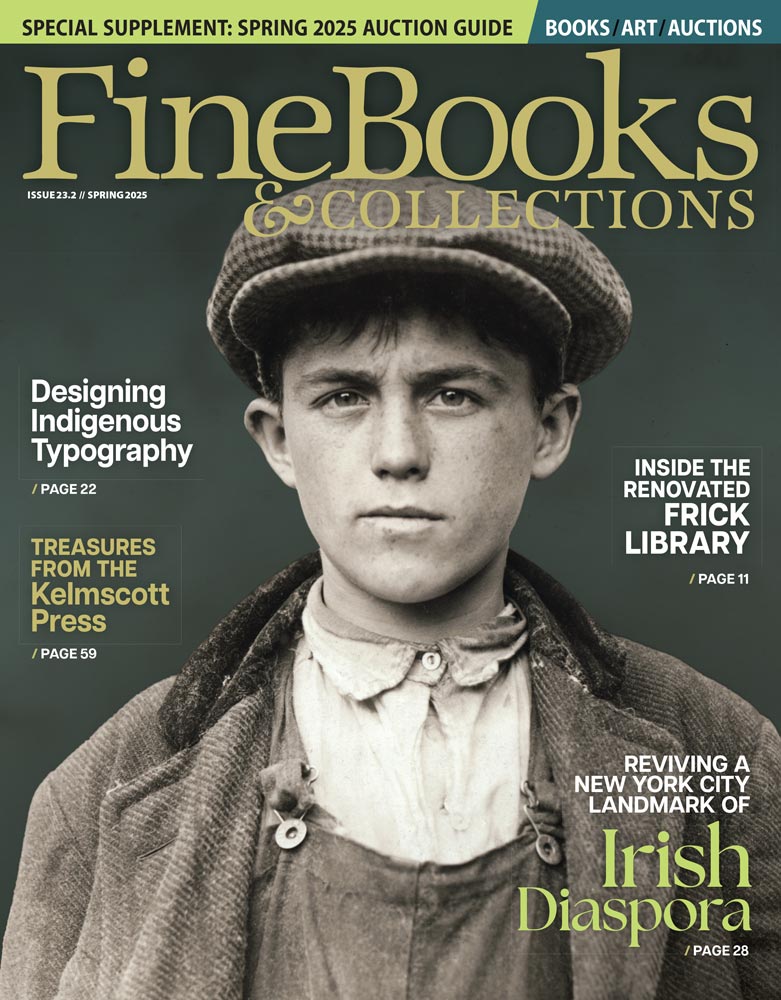Our Bright Young Collectors series continues today with Margaret Landis of Albuquerque, New Mexico. Margaret was recently an Honorable Mention in the 2018 Honey & Wax Book Collecting Prize for women collectors 30 and under.
Where are you from / where do you live?
I'm originally from the Pacific Northwest, and I'm in Albuquerque, NM now.
What did you study at University? What do you do now for an occupation?
I studied physics and astronomy as an undergraduate, and I earned my PhD in Planetary Sciences from the University of Arizona this past spring. I'm currently a Postdoctoral Research Scientist at the Planetary Science Institute.
Please introduce us to your book collection. What areas do you collect in?
I read a lot, and still mostly on paper so I have a bunch of books I've been dragging along with me across a few states. The ones I specifically collect are about the history of women and under-represented minorities in science and exploration. I have a much smaller collection started on polar exploration.
How many books are in your collection?
I have about 30 at last count, which probably means it's 1-2 books behind.
What was the first book you bought for your collection?
Miss Leavitt's Stars: The Untold Story of the Woman Who Discovered How to Measure the Universe by George Johnson (2006).
How about the most recent book?
Tilly Edinger: Leben Und Werk Einer Judischen Wissenschaftlerin, Rolf Kohring and Gerald Kreft (eds.) (2003). I was in Frankfurt for a work trip and went to the natural history museum and found a display about Tilly Edinger. Most of this book is in German, but not quite all of it. Dr. Edinger grew up and worked in Germany, founding the field of neuropalentology, until she had to flee the Nazis in 1938. She taught at Harvard and Wellesley and was elected to the American Academy of Arts and Sciences in 1953.
And your favorite book in your collection?
Chasing Eclipses: The Total Solar Eclipses of 1905, 1914, 1925 by Rebecca R. Joslin (1929). Three trips to finally see a total solar eclipse, told from the first person by the author. I've tried to find some more information about Joslin online, and she wrote other books but I haven't (yet) been able to find out why a Bostonian DAR decided to spend two decades finally trying to see a total solar eclipse.
Best bargain you've found?
In terms of time investment, definitely Madame Curie: A Biography by Eve Curie. I was browsing a booth at Tucson Festival of Books, and it was right there for a pretty reasonable price. I'd been wanting to add a copy to my collection after I'd read a few chapters for an undergraduate research project and adding a copy to my collection had always been on my to do list, but I hadn't gotten around to it. I really like finding something for the collection when I'm just generally browsing--it feels like a very happy coincidence.
How about The One that Got Away?
I've been very fortunate in that the books I've been adding to the collection have been relatively straight forward to find. I try to be on the ball about new releases out of professional and personal interest, and part of my I'm building my collection is so I have recommendations for people who either 1) don't see themselves in the history of science or 2) don't know that women and people of color have been here since the beginning (like using spectroscopy to understand the composition of other stars). Still, I would really like to add a signed first of The Woman Who Smashed Codes by Jason Fagone (2017) and I need to start expanding my collection of titles printed before about 1990.
What would be the Holy Grail for your collection?
Something like Our famous women by Elizabeth Stuart Phelps (1884). Something that would document maybe the first phase of writing about women pioneers in science for the public. While women and currently under-represented minorities in science have always been part of the history of science, I'm particularly curious to explore the phenomenon of popular writing about them and how it reflects larger social trends of the time.
Who is your favorite bookseller / bookstore?
One of my favorite standbys is Powell's in Portland, and my favorite in grad school was Antigone Books (Tucson).
What would you collect if you didn't collect books?
I would probably collect maps, especially geologic maps. I think they're a fascinating way of displaying 3D information on a 2D surface.


